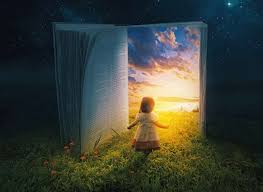Wonder
Wonder
“Wonder is being receptive to what lies all around you….Always be on the lookout for the presence of wonder.” ~ E.B. White
There is so much written in adult literature about “being child-like”. Perhaps, a large part of that idea is that we, like our children, ought to actively employ our sense of wonder. We can nurture this treasured perspective in our children, as we rekindle it in ourselves.
“If a child is to keep alive his inborn sense of wonder… he needs the companionship of at least one adult who can share it, rediscovering with him the joy, excitement, and mystery of the world we live in.”— Rachel Carson, The Sense of Wonder
“Pausing to listen to an airplane in the sky, stooping to watch a ladybug on a plant, sitting on a rock to watch the waves crash over the quayside—children have their own agendas and timescales. As they find out more about their world and their place in it; they work hard not to let adults hurry them. We need to hear their voices.” ~ Cathy Nutbrown
Here are some ways we can cultivate the sense of wonder and awe in our children’s lives, while re-awakening it in ourselves:
Get out and experience the “awe” of nature: Notice the intricacy of veins in a decaying leaf. Watch and record the changing phases of the moon. Observe the formation of a flock of migrating birds. Capture snowflakes on your tongue or fingertips.
See the simple and ordinary in new ways: Choose a favorite fruit, like an orange. Take a full 15-30 minutes to sit quietly and use all of your senses to explore, touch, feel, smell, listen, see, taste, and eat it. What did you notice or experience that you never had before?
Expand your view by closing your eyes, or by using a magnifying lens, microscope, telescope, or binoculars: Compare different kinds of soil. Look at the surface of your dog’s fur. What can you see moving on a distant mountain peak?
Follow your child’s lead: Share their moments of wonder. Pause with them, listen, observe, and share the joy of their discoveries.
Slow down: Lie down on your back and look up at the ceiling, or at the open sky. Listen to a beautiful selection of music. What do you feel, see, or wonder about? Talk with your child.
Model a sense of amazement and appreciation. Comment aloud and share your wonder, gratitude, and fascination through-out the day, with your children.
Ask your children to share what they wonder about: Ask open-ended, thought-provoking questions, like: “Why do you think…? What makes that…? How can that possibly…? Where does that…?”
“I sincerely believe that for the child, and for the parent seeking to guide him, it is not half so important to know as to feel. If facts are the seeds that later produce knowledge and wisdom, then the emotions and the impressions of the senses are the fertile soil in which the seeds must grow. The years of childhood are the time to prepare the soil. Once the emotions have been aroused – a sense of the beautiful, the excitement of the new and unknown, a feeling of sympathy, pity, admiration, or love – then we wish for knowledge about the object of our emotional response. Once found, it has lasting meaning. It is more important to pave the way for the child to want to know than to put him on a diet of facts he is not ready to assimilate.” ― Rachel Carson, The Sense of Wonder
The sense of wonder is a magical experience. It is more than mere fascination or inquiry because it helps us to comprehend that we are part of a universe much greater than ourselves and that there are compelling mysteries and delightful discoveries to be enjoyed, immediately around us. Wonder is closely linked to profound gratitude. A pure sense of wonder comes from an open and receptive soul. It can connect us, calm us, provide deep satisfaction, and inspire us. Wonder-filled moments also stimulate curiosity, creativity, and innovation — all essential tools for making important learning correlations and for solving complex problems. Most importantly, the sense of wonder gifts us present joy.
“For most of us, knowledge of our world comes largely through sight, yet we look about with such unseeing eyes that we are partially blind. One way to open your eyes to unnoticed beauty is to ask yourself, “What if I had never seen this before? What if I knew I would never see it again?”― Rachel Carson, The Sense of Wonder
Additional Resources:
Book: The Sense of Wonder, by Rachel Carson
Videos:
The Kid Should See This, is a must-see wonder-inspiring collection of videos on everything from crayon making, to a spinning Rudolf Nureyev, to a leafy green dragon.
~Kim Goates
Executive Director





Leave a Reply
Want to join the discussion?Feel free to contribute!